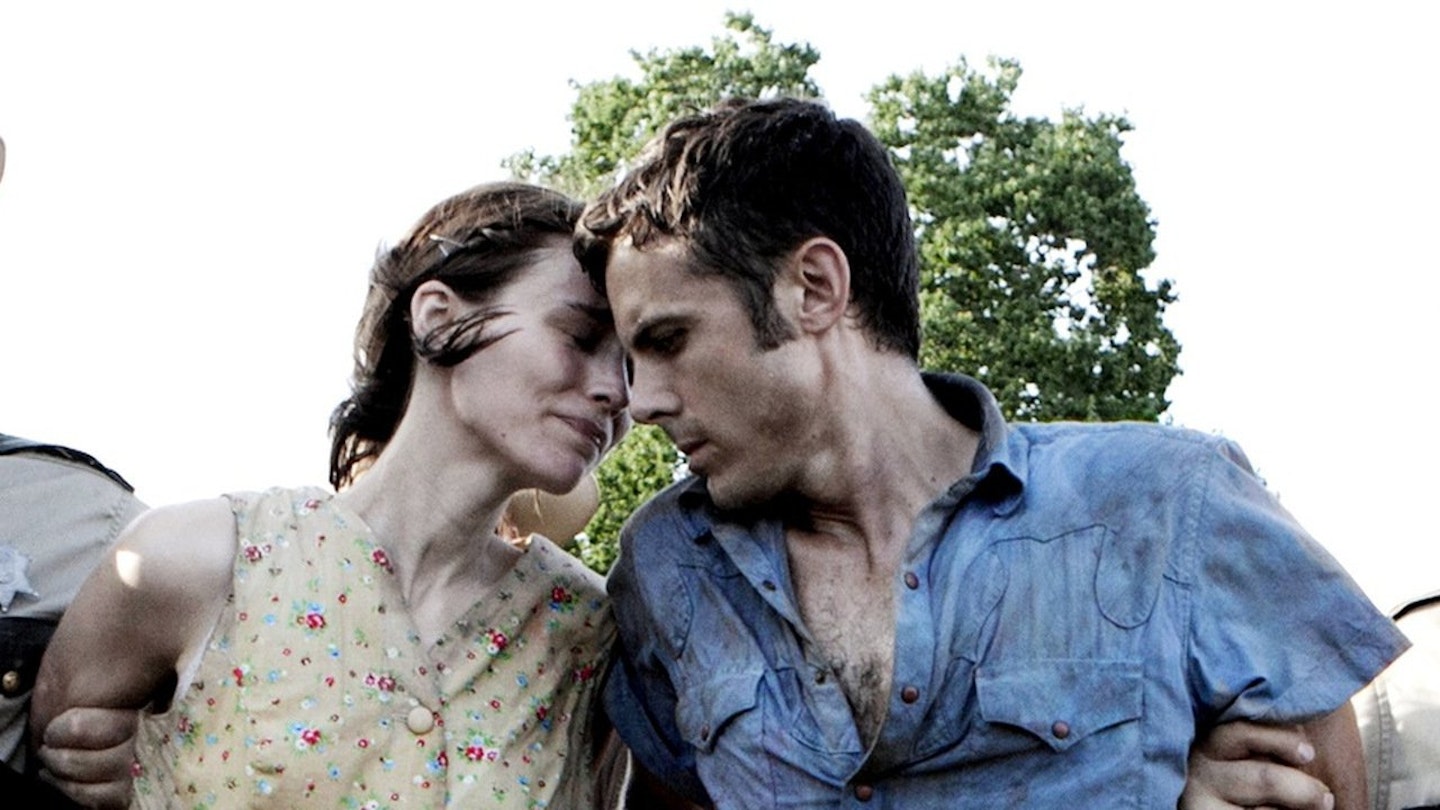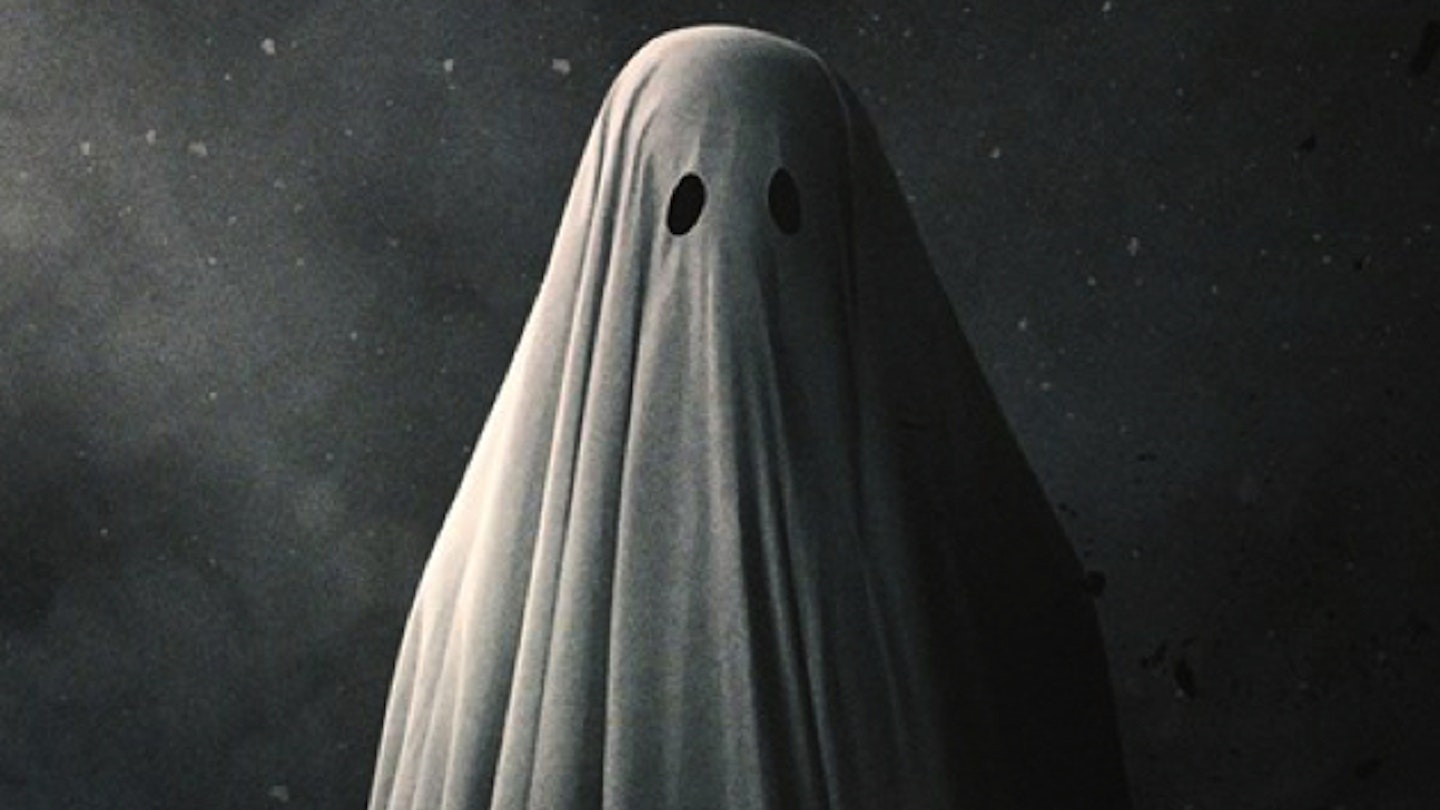David Lowery, a writer-director earmarked for greatness by the cognoscenti, sings a melancholy song. In broad terms, his Texan-set second film is a neo-Western with a swig of noir and a gulp of Badlands, but Lowery is aspiring to the quality of a ballad; his film is timed not to the gunshot of incident, rather its after-effect. The moments between the moments are the director’s goal. He creates a film afloat on mood, feeling, and the contemplative feeding of chickens. You sure do miss those spit-and-sawdust moments.
Saints is less a story than a gorgeously lit outline rescued from Cormac McCarthy’s wastepaper bin: dirt-poor lovers do some robbing; she wings a cop, he takes the rap. She has his child, he absconds from jail and heads for home; she chews over the wisdom of taking him back. Meanwhile, in a skeletal subplot, a gang of ferret-faced killers swagger into town to retrieve the stolen loot.
For all the long, loving close-ups, it’s as if we view events from afar through the bruised, magic-hour radiance of forgotten photos. Lowery not only sets his film in a hardscrabble ’70s, but shoots with antique lenses and without fluorescent lights, wearing his inspirations proudly (if riskily) on his sleeve — Terrence Malick, Arthur Penn, Robert Altman.
Every scene is self-consciously poetic, high-style mythologizing that has its leading lady read a letter not at her breakfast table but in a cornfield baked in golden sunlight. There is no contrast to all this contrast, the lamplight exalting the earnestness of the acting. While reliably believable, Casey Affleck (edgy vagabond) and Rooney Mara (sleepy-eyed, mopey pixie girl) have been here before.
The more interesting performances lie one tier down: town-Yoda Keith Carradine growling like a faded rock star, and the underrated Ben Foster as a soft-spoken cop, married to the future not the past. In his delicate romancing of Ruth, the film finds a grace note without trying.



